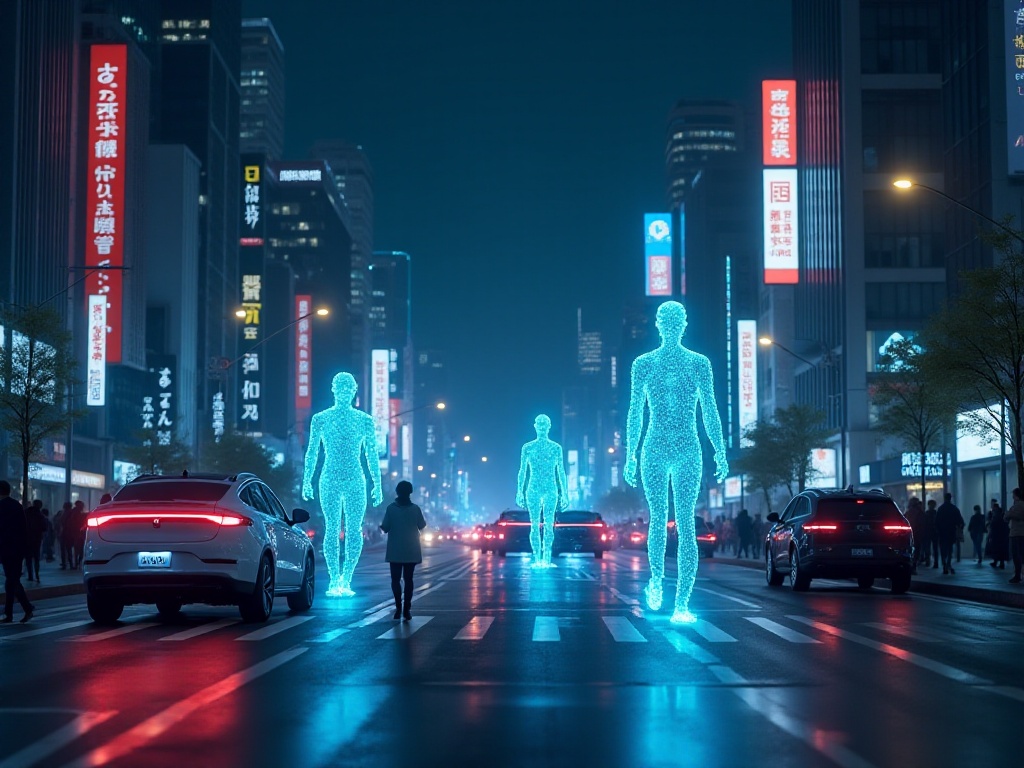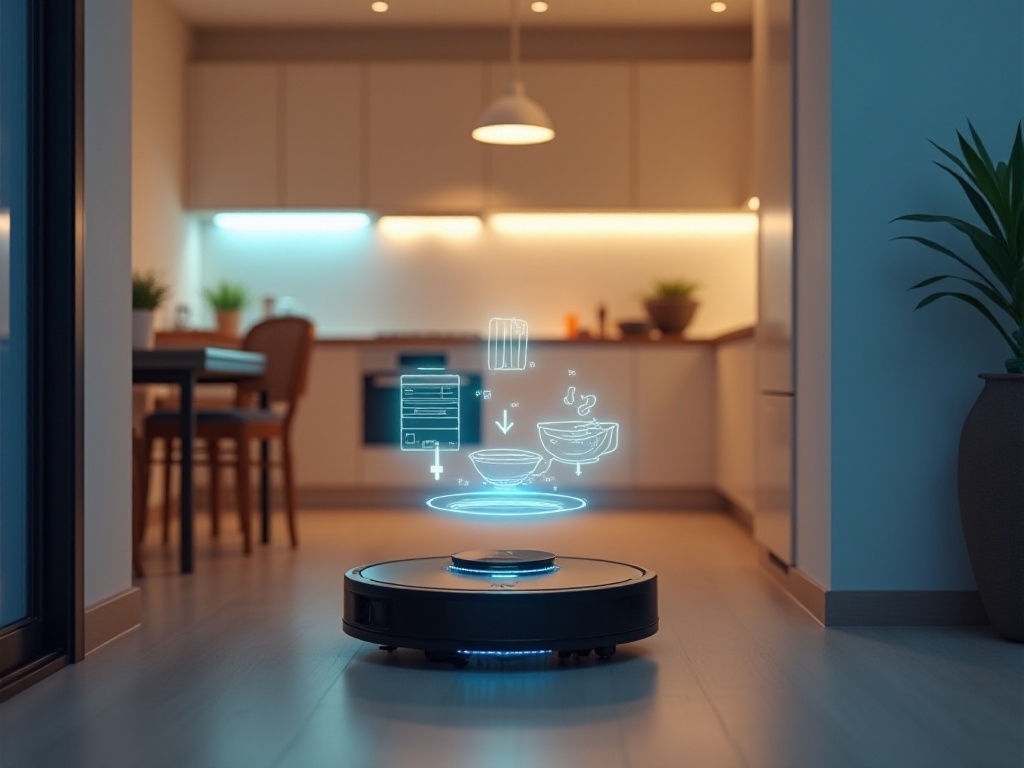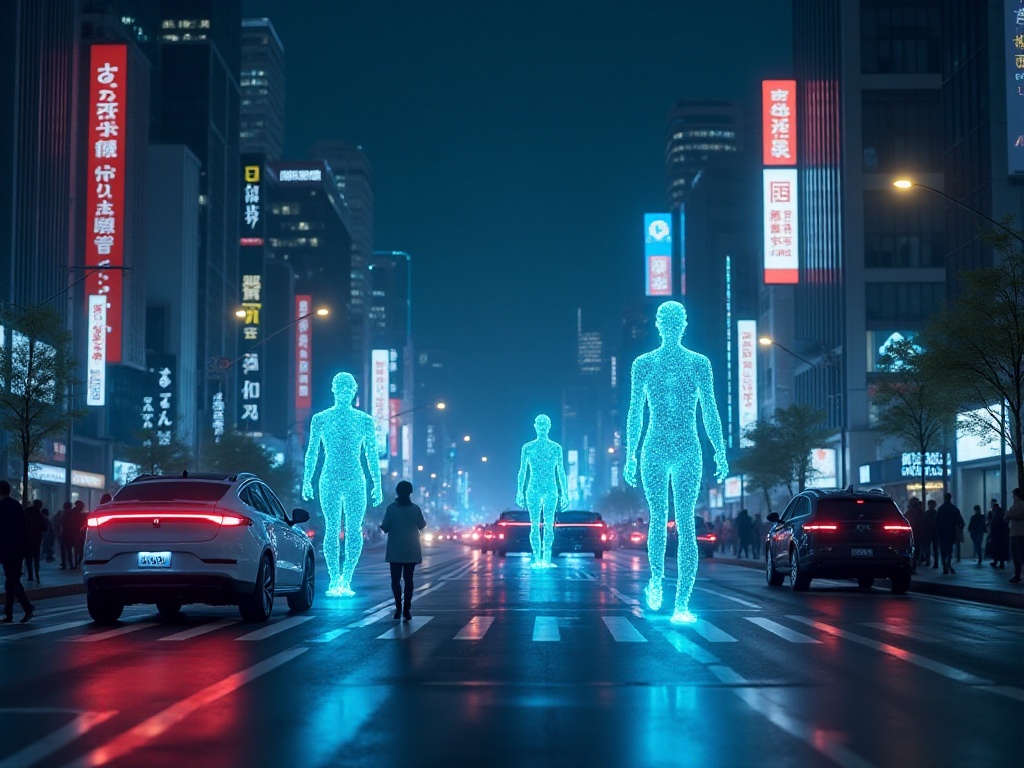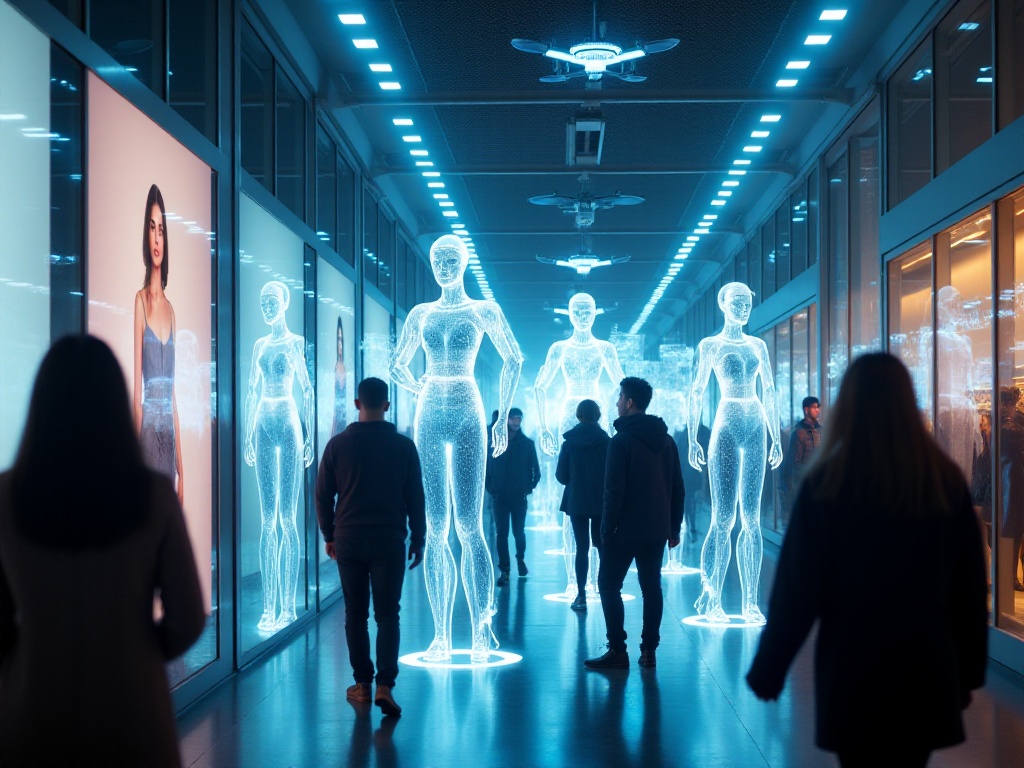Introduction
Every morning when I wake up, I can feel life quietly changing. Things that once required careful memory and attention have now become simple and effortless. As a young person growing up in an era of explosive technological development, I deeply feel how AI is reshaping our way of life. From morning to night, from daily necessities to work and study, AI's presence is everywhere.
We now stand at the crest of a technological revolution wave. I remember in science fiction movies I watched as a child, artificial intelligence was still a distant future. Today, that future has quietly arrived in our lives. Let's take a look at how AI is changing our daily lives.
Morning Time
Mornings are no longer irritating moments of being awakened by traditional alarm clocks. My smart speaker "Little A" is like my personal assistant. It understands my daily routines, knows when to speak softly and when to increase volume. Sometimes while I'm still dreaming, it's already adjusting the room's temperature and humidity, letting me wake up naturally in the most comfortable environment.
"Good morning! It's sunny today, temperature ranging from 12 to 23 degrees, suggesting you wear a light jacket. Oh, and remember to bring an umbrella, there might be brief showers in the afternoon." Such gentle greetings make every morning full of anticipation. It also intelligently plans my morning time based on my schedule. "I've organized the materials for your 10 AM meeting, and I suggest you start preparing at 9:45 AM so you can enter the meeting state unhurried."
What delights me most is its ability to recommend suitable breakfast combinations based on my physical condition and daily schedule. "You went to bed late last night, so I suggest having something with caffeine today. There's still milk and fruit in the refrigerator from yesterday, you could make a mixed smoothie." Such thoughtful suggestions start my day with a delicious breakfast.
The popularization of smart homes means such scenarios are no longer exclusive to a few. According to the latest statistics, the global penetration rate of smart home devices reached 35% in 2024, with smart speakers usage rate as high as 68%. This means more and more people are starting to enjoy the convenience brought by AI. Beyond simple voice control, smart home devices can now learn users' habits and proactively make thoughtful predictions and adjustments.

Travel Assistant
In terms of travel, AI's capabilities are even more remarkable. I remember the various anxieties when visiting unfamiliar places before: worrying about getting lost, fearing traffic delays, not knowing where parking spaces are. Now these problems no longer trouble me.
My AI navigation is like an all-knowing guide. It not only understands real-time road conditions of every street but can also predict traffic conditions for the near future. Once when I needed to attend an important client meeting, sudden congestion appeared on my planned route. The AI navigation immediately analyzed multiple alternative routes, considering various factors: road conditions, traffic light timing, nearby school schedules, etc. It finally suggested a route that seemed longer but was actually the fastest, allowing me to arrive at the meeting on time.
More amazingly, it learns my travel habits. Knowing I dislike morning traffic, it suggests leaving a few minutes earlier or later; understanding I like podcasts, it automatically recommends suitable content during long drives; it even helps find the nearest parking spot in advance when I visit my favorite coffee shop.
Current AI navigation systems have achieved 97% accuracy, supported by massive data. They rely not only on real-time traffic conditions but also analyze historical data, weather conditions, major events, and multiple dimensions of information to make optimal route recommendations. Typically, their predicted journey time errors are within 3 minutes, a precision unimaginable in the past.

Work Assistant
In work scenarios, AI's presence has led to a qualitative leap in efficiency. I remember when I first started working, organizing meeting minutes was the most headache-inducing task. Having to recall meeting content, organize thoughts, and express them in professional language. Now, AI assistants can record meeting content in real-time and automatically generate clearly structured minutes. They not only capture key points but also understand the meeting's purpose and conclusions based on context, generating actionable task lists.
AI has been a great help in report writing. It's like an experienced editor, providing professional expression suggestions, pointing out logical gaps in language, and even providing relevant data support. Sometimes when I'm stuck on a paragraph, it provides several ideas based on context, helping me break through writer's block.
What impresses me most is its learning ability. Through continuous exposure to my work content, it increasingly understands my work style and expression habits. Now it can even anticipate materials I might need next and prepare them in advance. For example, when I'm reviewing a market report, it automatically collects relevant industry data and competitor information, forming a complete reference package.
Data shows that workplace professionals using AI assistance tools have increased productivity by an average of 23%. Particularly in document processing and information organization, time savings can reach up to 40%. This means we can invest more energy in work that truly requires creativity and judgment.

Life Manager
Returning home after work, the convenience brought by AI makes one feel the improvement in quality of life. My smart refrigerator not only monitors food expiration dates but also recommends recipes based on available ingredients. Sometimes when I see a good recipe, it thoughtfully tells me which ingredients are missing and need to be purchased from the supermarket.
The robot vacuum is my most trusted cleaning assistant. It not only automatically plans cleaning routes but remembers environmental changes in the house. For example, when I recently bought an expensive vase, it particularly avoids that area. More thoughtfully, it knows when I usually work from home and chooses to clean during times when I'm away or don't need quiet.
The smart clothes drying rack is another delightful invention. It automatically extends and retracts clothes based on weather forecasts, bringing them in when it rains and extending them on sunny days. It even reminds me to hang clothes promptly when the washing machine finishes. These small changes make household chores much less demanding.
Market data shows that smart appliance sales grew 45% year-over-year in 2024, with AI-enabled products accounting for over 80%. This trend indicates that more people are beginning to accept and rely on these smart devices to improve their quality of life. From initial simple controls to current smart linkage and scene recognition, smart homes are developing towards more intelligent and humanized directions.

Looking to the Future
Standing at present and looking back at the changes over the past few years is truly remarkable. The development speed of AI technology has far exceeded our imagination, and the changes it brings us go far beyond this.
Future life scenarios might be even more anticipated. Imagine your personal AI nutritionist adjusting dietary recommendations in real-time based on your body data, exercise amount, and food preferences. It not only knows what's best for your body but also considers your taste preferences to recommend the most suitable healthy recipes.
Smart wardrobe systems might become your personal stylist. They can analyze weather, occasions, and your mood state to recommend the most suitable outfit combinations. Moreover, they can help create the most appropriate personal image based on your social circle and professional characteristics.
In terms of home life, AI might bring more breakthrough changes. For example, smart home systems could predict your emotional changes and automatically adjust home lighting, music, and temperature to create the most comfortable living environment. Or they could automatically adjust energy use in different spaces based on family members' routines, being both environmentally friendly and energy-efficient.
AI applications in education are also promising. Personalized AI education assistants can develop the most suitable learning plans based on each person's learning characteristics and progress. They can not only identify weak points in learning but also provide targeted practice and answers.
Authoritative institutions predict that by 2026, AI applications in personal life will increase threefold, covering almost every aspect of our lives. This means our lives will become more intelligent, more convenient, and more personalized.
Every technological advancement aims to make life better. AI's development is changing our way of life, allowing us to invest more time and energy in truly important things. Future life will certainly be more wonderful than we imagine.
Are you also looking forward to the future? Welcome to share your thoughts and expectations in the comments section, let's explore the infinite possibilities AI brings us together.







